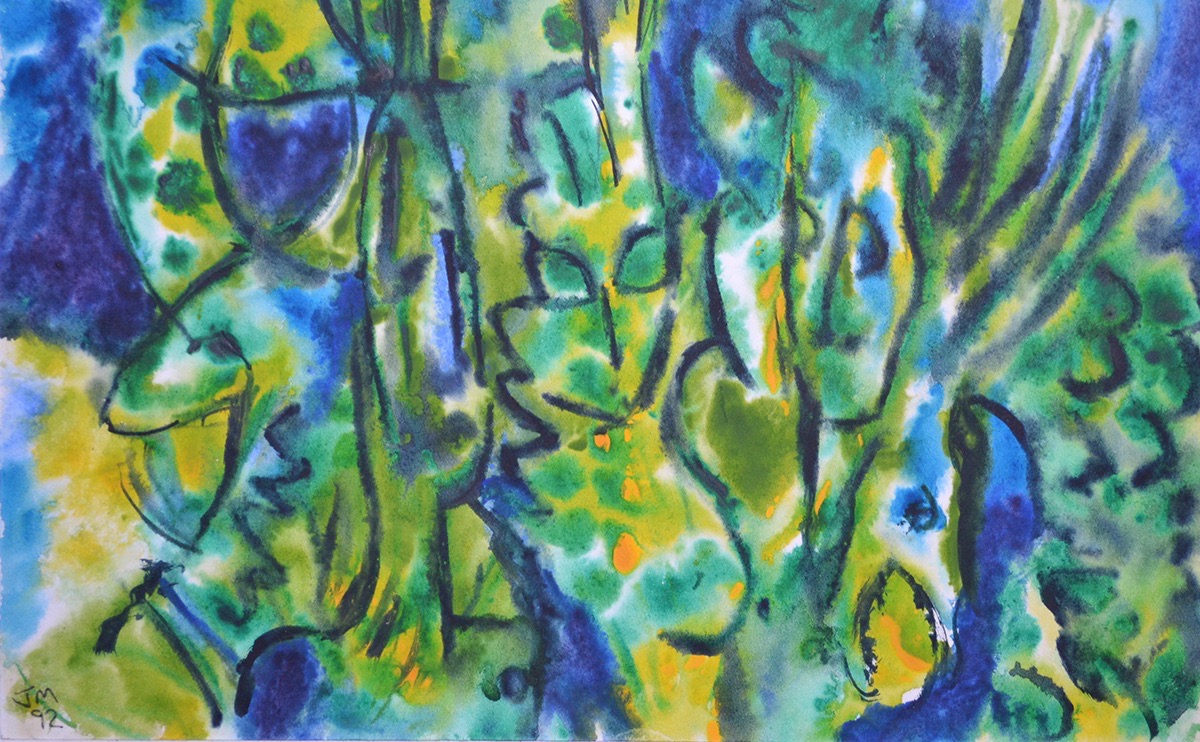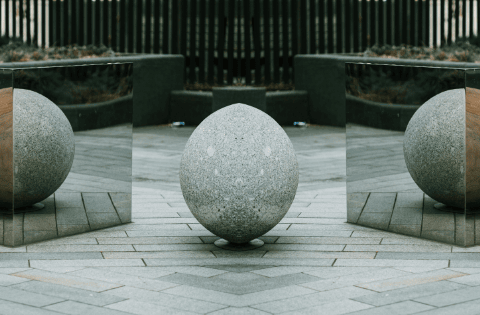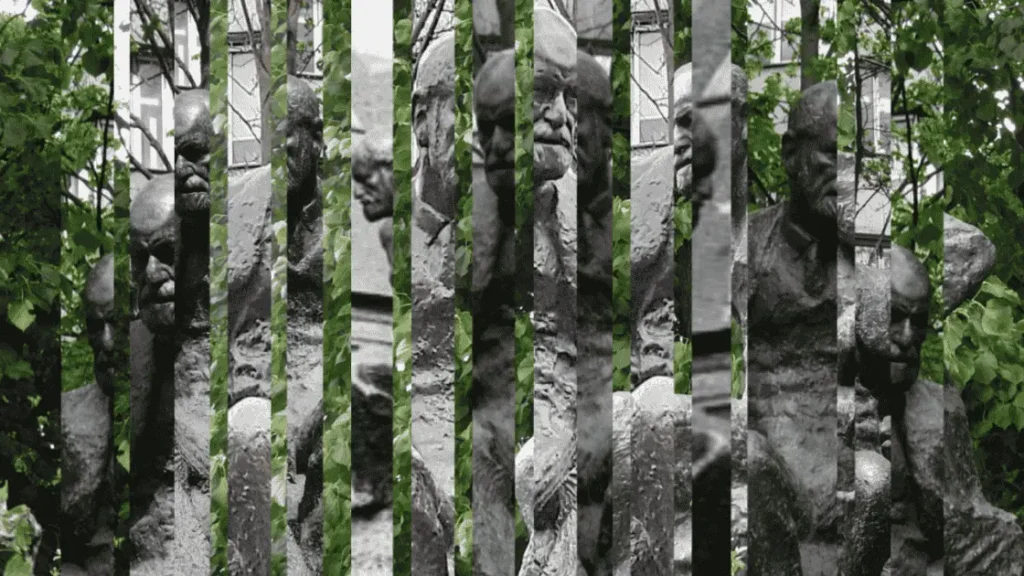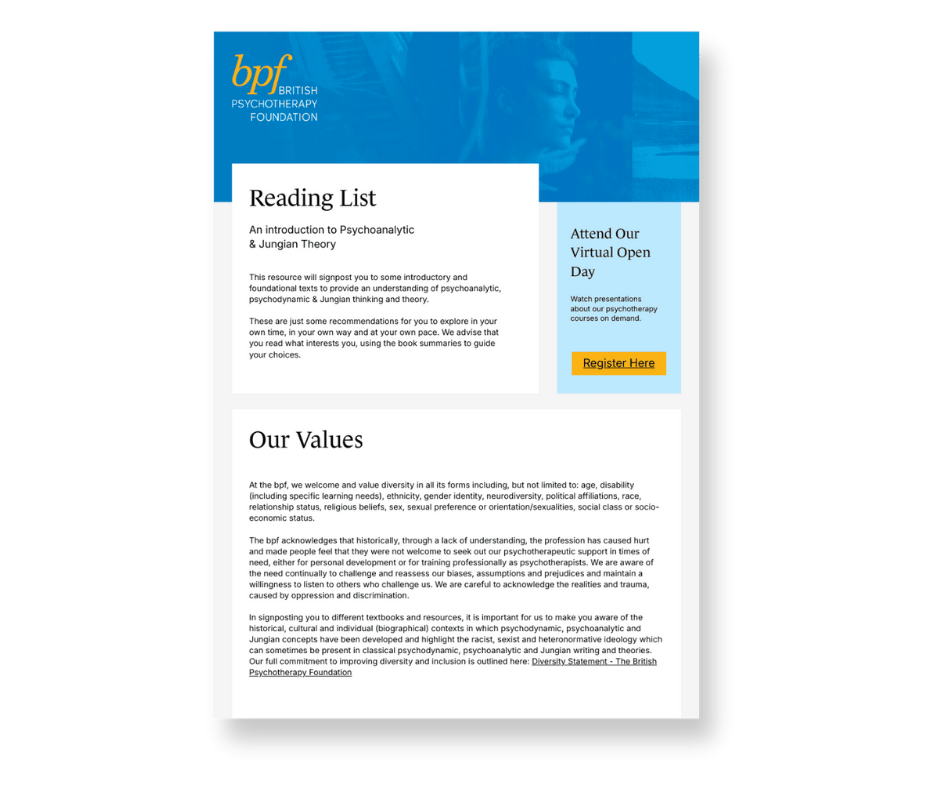
Jungian Dreams Workshop
Applications for 2026 will open February 1st 2026.
A series of six Saturday workshops exploring dream and dream interpretation through the Jungian lens.
We will develop and deepen our conversation with dreams and dream symbolism, widening our understanding of collective and personal unconscious processes, both in and outside the consulting room. No prior knowledge of Jung is assumed.
Each meeting will focus on a particular aspect of dreams.
Applications are now closed for 2025
- Who is it for
- Structure
- Entry requirements
- Course fees
- Course content
- Access information
- Resources
- How to apply
The workshop is open to psychotherapists, counsellors, or therapists of any modality with an interest in working with dreams. The ability to openly engage with the reading material is an essential part of the group’s discussions.
6 Saturdays, 10:00 am – 1:00 pm on Zoom
10:00 – 11:30: Seminar led by an experienced Jungian Analyst on different aspects of dreams.
11:30 – 11:45: break
11:45-13:00: Practical engagement with a dream, or dreams, provided by the participants from either their own experience or that of their clients/patients – with Ruth Calland.
The course is designed for qualified therapists who are currently practicing, but we do also welcome applications from trainees with at least 100 hours of clinical practice.
Please note that fees will be subject to annual increases in line with inflation in the UK.
Please note that the bpf will not be held responsible for travel/hotel expenses made or incurred in the unlikely event of this course either being cancelled or postponed. See our cancellation and refund policies for more information.
Workshops Coordinator
Ruth Calland

Ruth Calland is a Jungian analyst and supervisor working with adults and couples. They were Chair of the BJAA during the pandemic, when they initiated the development of the once-weekly Jungian training. They teach at the Society of Analytical Psychology, and on the BPF Psychodynamic Psychotherapy Training; they are a training analyst for the British Jungian Analytic Association, and until recently hold the post of Creative Workshops Coordinator for BJAA. They have an interest in the outsider, neurodiversity, queerness and creativity. Their paper ‘Race, power and intimacy in the intersubjective field: the intersection of racialized cultural complexes and personal complexes’ won the Fordham Prize in 2021. They are also a professional artist, and their recent work has focussed on collaborative representations of trans and non-binary people.
2025 – 2026 Programme
October 11th – The Alchemy of Dreams
Marilyn A F Mathew

In this seminar we will explore the various alchemical themes and symbols that occur in dreams. Archetypal processes, contexts, characters, colours, patterns, topography, direction, and shapes, for example, can offer insight into deep layers of the psyche. This can help us amplify the current position of ego with Self and also track the development of themes of individuation through dream series.
MARILYN A F MATHEW is a Jungian Training Analyst for the BJAA
Marilyn qualified in 1994 and since then has taken the role of Chair of the BJAA and Chair of the BJAA Training Committee. Currently she runs weekly Clinical Seminars for analysts-in-training and acts as a consultant for Infant Observation.
Marilyn teaches theoretical seminars on many aspects of dreams to do with Alchemy, Myths & Fairy Tales, and Dream Series. She is an experienced Social Dreaming Matrix Convenor and is consulted by people interested in exploring the dreams of adults or children through amplification and art.
Marilyn works in private practice with adults and supervisees in the UK and abroad, in person and online. Apart from her special interest in dreams and imagery, she is extremely interested in the nature of unconscious non-verbal communication and very early relationships. She is the author of a number of published papers & chapters.
November 8th – Dreams: Active Imagination and Guided Imagery
Dale Mathers

‘Dreams are letters from the Self’, said Marie Louise von Franz. They are written in symbols – a language in which the images are continually changing, so there is never one meaning for any dream. The meanings evolve over time, which is why there can’t be a ‘dictionary of dreams’. There are three main ways to engage with dreams: free association, active imagination and guided imagery. The latest research in neuroscience clearly shows how and where dreams are formed – and when we use any of these three techniques we use the same neural networks to decode dreams as we do to create them. In this seminar, we’ll look at this research, its implication for clinical practice, and play with these techniques. Participants will need drawing paper and crayons.
Dr. Dale Mathers MB. BS., is a retired psychiatrist, former training analyst and supervisor with the Association of Jungian Analysts. Member of the Russian Society for Analytical Psychology. Humanistic psychotherapist. Teaches analytical psychology in the UK, Ukraine, and Russia. Author of many publications, including: Dreams: the basics, (2024) London, Routledge, and Depth psychology and climate change, (2019) London: Routledge (ed.)
December 13th 2025 – Nightmares
Ruth Calland

Do you ride the nightmare, or does it ride you? We will distinguish nightmares from night terrors, and think about recent developments in the application of Steven Porges’ polyvagal theory (about fight/flight/freeze responses) to our understanding of the function of nightmares and the appearance of the archetypal.
We will identify the common features of nightmares as expressions of the alchemical nigredo and how the individual can attempt to work with nightmares in waking life. We will look at both the personal soul aspect and the nightmare’s potential to express aspects of collective or global trauma, and different cultural representations of the Nightmare.
Ruth Calland is a Jungian analyst and supervisor working with adults and couples. They were Chair of the BJAA during the pandemic, when they initiated the development of the once-weekly Jungian training. They teach at the Society of Analytical Psychology, and on the BPF Psychodynamic Psychotherapy Training; they are a training analyst for the British Jungian Analytic Association, and until recently hold the post of Creative Workshops Coordinator for BJAA. They have an interest in the outsider, neurodiversity, queerness and creativity. Their paper ‘Race, power and intimacy in the intersubjective field: the intersection of racialized cultural complexes and personal complexes’ won the Fordham Prize in 2021. They are also a professional artist, and their recent work has focussed on collaborative representations of trans and non-binary people.
January 10th 2026 – Dream Series
Julian Masters

Jung wrote, ‘I attach little importance to the interpretation of single dreams’. In this seminar we will explore the dream within the context of a series where it becomes possible to see the dynamism of the individuation process at work over time. We will examine a few specific examples to show the extraordinary creativity of these unconscious processes.
Julian Masters is a member of the British Psychotherapy Foundation (bpf) and the International Association of Analytical Psychology (IAAP). He works as a Jungian psychotherapist in private practice in Oxford. He teaches on BPF’s MSc course ‘Psychodynamics of Human Development’ and its introductory course ‘Psychotherapy Today’. Julian is also a painter, musician, and composer.
February 7th 2026 – Social Dreaming. Exploring the unconscious dynamics of the collective
Helen Morgan

Social Dreaming is a pioneering methodology that has been developed since 1982 by Gordon Lawrence and his colleagues at the Tavistock Institute, London and elsewhere. This perspective regards dreams as more than the private possession of the dreamer and suggests that, by exploration in a social context through free association and amplification, the dream may help us gain a greater awareness of the hidden, underlying dynamics of the setting within which it takes place. This idea has an ancient lineage. Long before Freud and Jung began to study them, dreams and dreaming had great significance to people such as the Australian Aboriginals, Native Americans, Africans etc. as they attempted to understand the meaning of their lives and the world in which they lived. In this session we will explore some of the principles underlying the concept of the Matrix, using illustrations from previous Matrices convened in International settings.
Helen Morgan is a Fellow of the British Psychotherapy Foundation (BPF) and is a training analyst and supervisor for BJAA. Her background is in therapeutic communities with adolescents and in adult mental health. She was chair of the British Association of Psychotherapists from 2004–2008, and chair of the British Psychoanalytic Council from 2015-2018. She has convened and written about Social Dreaming Matrices since 1995. She has also written and spoken on the subject of racism and her book, ‘The Work of Whiteness. A Psychoanalytic Perspective’ was published in 2021 by Routledge.
March 7th 2026 – Those who cross you: psychosocial approaches to otherness in dreams
George Taxidis

One of the most painful aspects of undergoing Jungian analysis, is the emphasis on paying attention to the inner and outer other. Jung says that in the path to individuation, one will inevitably “run into things that thwart and ‘cross’” them (CW16, para. 470) – the word ‘cross’ and its association to crucifixion pointing to how excruciating these encounters can be. This seminar will adopt a psychosocial lens to the centrality of encountering the other in dreams and active imagination. We will discuss several dreams and wrestle with the inner/outer world conundrum, particularly the temptation to see figures in dreams as mere reflections of figures in one’s outer life and how challenging it can be to discern when integrating otherness calls for action (activism, even) in the external world, and when it does not. We will end with a live reading of one of Jung’s own encounters with otherness in The Red Book.
George Taxidis is a Jungian analyst with the British Jungian Analytic Association and works in private practice in east London. He studied Jung’s Red Book with the Circle of Analytical Psychology. He is a lecturer at Goldsmiths, University of London, where he teaches psychodynamic counselling and psychosocial studies. He co-founded the International Queer Jungian Initiative and is currently writing a book on queering Jungian psychology, to be published as part of the Jung, Politics and Culture series by Routledge.
_________________
This course will be conducted online, via Zoom.
Blogs
Frequently Asked Questions About Psychodynamic Psychotherapy
How to become a psychotherapist in the UK – The British Psychotherapy Foundation
My Journey as a Black Trainee in Psychodynamic Psychotherapy – The British Psychotherapy Foundation
How Couples Psychotherapy Can Transform Relationships – The British Psychotherapy Foundation
Why become a psychotherapist? (part I)
Why become a psychotherapist? (part II)
Videos
What’s it like to be a psychotherapist? Psychoanalytic psychotherapist (youtube.com)
What’s it like to be a psychotherapist? Child and Adolescent Psychotherapist (youtube.com)
What’s it like to be a psychotherapist? Jungian Analyst (youtube.com)
Register for September 2025.
Kindly download the application form. Once completed, please send it to Angelina Verduzco, at: [email protected]
The bpf is committed to diversity and inclusivity in all the work we deliver. We are fully dedicated to promoting, maintaining and supporting equality of opportunity in all aspects of our organisation and, as such, the bpf welcomes applications from all sections of society.
The standard of teaching was exceptional, and the course structure fostered an environment conducive to our growth and development as clinicians. Regular weekly supervision sessions allowed us to strengthen our peer relationships while deepening our learning.
bpf Student
Simply, it exceeded all my expectations, and sufficiently impressed and enthused me to consider a future career in psychotherapy. On a personal level it has changed me; something that has been accelerated by beginning my own personal analysis. I find myself thinking about non-verbal communications much more as a consequence of having attended the course.”
bpf Student
The course has allowed me to dip my toe into the analytic world and provided a broad overview of the analytic landscape. It has enhanced my understanding of psychoanalytic ideas and I’ve particularly benefited from speaking to experienced clinicians. The discussion groups in particular have been useful to clarify my own ideas and get a different perspective from others. Overall, it has helped me to determine if I would like to pursue work in this field.”
bpf Student

New Courses
- Intensive Summer School: Foundations of Psychoanalytic & Jungian Psychotherapy – (Taught Online, Thursday 16th to Monday 20th July, 2026)
- Awakening the Inner World: An Experiential Weekend for Beginners – (Taught in London, 5th–6th & 26th–27th September, 2026)
- Reading Group – Psychoanalytic Psychotherapy Association – (Taught Online, Rolling Entry)
- Psychodynamic and Jungian Theory for Qualified Practitioners (Taught Online, September 2026)
bpf North:
- Foundation Course (Taught in Newcastle, October 2026)
- Psychoanalytic & Psychodynamic Psychotherapy Training (Taught in Newcastle & Online, October 2026)
Upcoming Events:
- Online Open Day – Intensive Summer School: Foundations of Psychoanalytic & Jungian Psychotherapy – Date: 28th February, 2026. Time: 10:00 – 11:30. Venue: Online. Register Here.
- Hierarchies and Fragmentations in Psychoanalysis – Date(s) 23rd April, 14th May, 2nd July & 12th September, 2026. Venue: Online and In Person. Event series + conference, in collaboration with CPJA and UKCP. Find out more.

Make a £10 Donation – Receive a Psychoanalytic Reading List
Donating supports our mission to make our psychotherapy training, clinical services, and public events affordable, accessible, and more inclusive.
Reading List: Introduction to Psychoanalytic & Jungian Theory
Receive a curated list of 67 essential texts – covering psychoanalytic, psychodynamic, and Jungian theory – ideal for both newcomers and those wanting to deepen their knowledge.

